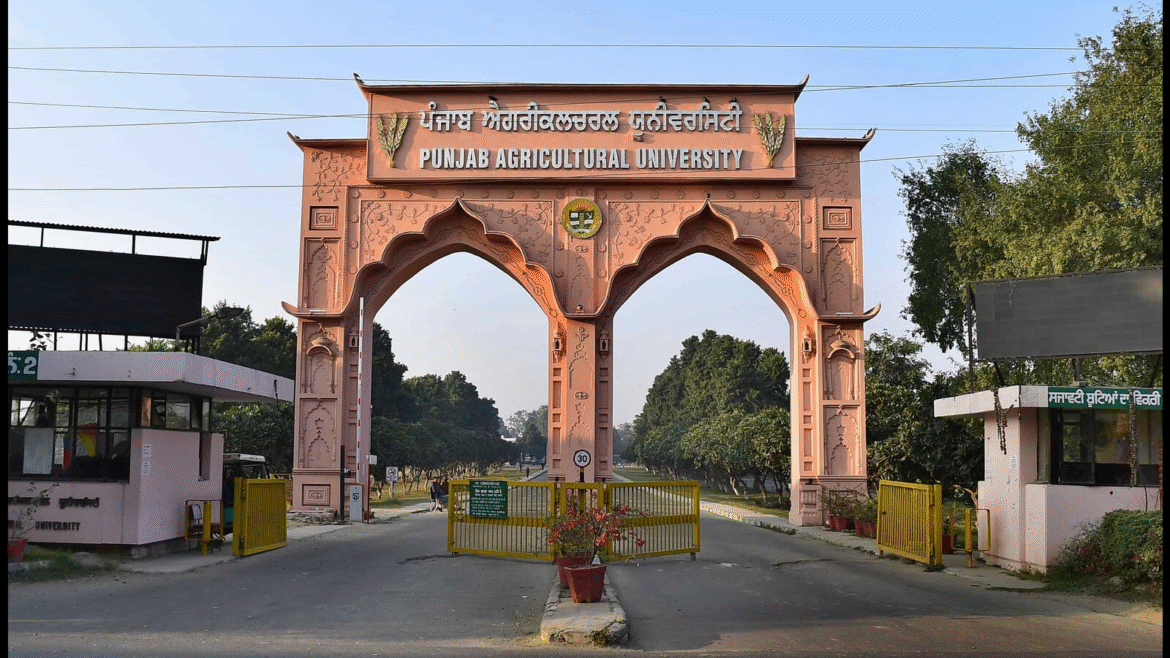AI Generated Summary
- Gill, who played a key role in the ranking process, emphasized that the university’s second national position validates its forward-looking approach and solidifies its place on the national agricultural map.
- Founded on a legacy of institutional excellence and groundbreaking research, PAU boasts over 35 academic departments, six constituent colleges, and a robust network of 10 regional research stations.
- As India grapples with challenges related to food security and climate resilience, PAU stands as a pillar of strength — innovating, educating, and transforming agriculture for a better tomorrow.
Punjab Agricultural University (PAU), Ludhiana, has once again affirmed its position as a national frontrunner in agricultural education and research. The university has clinched the top rank among 67 State Agricultural Universities (SAUs) and secured an impressive second place nationwide in the prestigious Indian Institutional Ranking Framework (IIRF) 2025.
Among 78 of the country’s leading agricultural and horticultural institutions — which include ICAR-Deemed Universities, Central Agricultural Universities, and various ICAR institutes — PAU stands second only to the Indian Agricultural Research Institute (ICAR-IARI), New Delhi. The rankings are based on a comprehensive evaluation of academic performance, research output, industry partnerships, placement records, faculty excellence, innovation, and diversity.
Lauding this significant achievement, PAU Vice-Chancellor Dr. Satbir Singh Gosal described it as a reflection of the university’s enduring legacy and national stature. “This recognition underscores our continuous commitment to excellence in education, research, and extension,” he stated. “PAU’s presence at the top of national rankings year after year speaks volumes about the dedication of our faculty, students, and staff.”
The IIRF 2025 accolade adds to a growing list of honours for the university. PAU was previously ranked the best among SAUs and third nationally in the Ministry of Education’s NIRF rankings in both 2023 and 2024.
Registrar Dr. Rishi Pal Singh (IAS) echoed the Vice-Chancellor’s sentiments, calling the latest recognition a result of the university’s consistent pursuit of academic excellence and innovation tailored to farmers’ needs. “Our performance reflects a deep-rooted commitment to research that benefits the agricultural community directly,” he said.
Dean of Postgraduate Studies Dr. M.I.S. Gill, who played a key role in the ranking process, emphasized that the university’s second national position validates its forward-looking approach and solidifies its place on the national agricultural map. “Our clarity of mission and impactful presence are evident in these results,” he noted.
Founded on a legacy of institutional excellence and groundbreaking research, PAU boasts over 35 academic departments, six constituent colleges, and a robust network of 10 regional research stations. Its contributions span over 950 developed crop varieties — including major advances in wheat, rice, cotton, and horticultural crops.
In addition to its research achievements, PAU is known for its extensive outreach. Through seed distribution, training programs, on-field demonstrations, and advisory services, the university directly benefits lakhs of farmers across Punjab and beyond. Its strong portfolio of research publications, patents, and technology transfers further highlights its pivotal role in shaping India’s agricultural landscape.
With national and international collaborations that strengthen its global footprint, PAU continues to set benchmarks in agricultural education and research. As India grapples with challenges related to food security and climate resilience, PAU stands as a pillar of strength — innovating, educating, and transforming agriculture for a better tomorrow.




